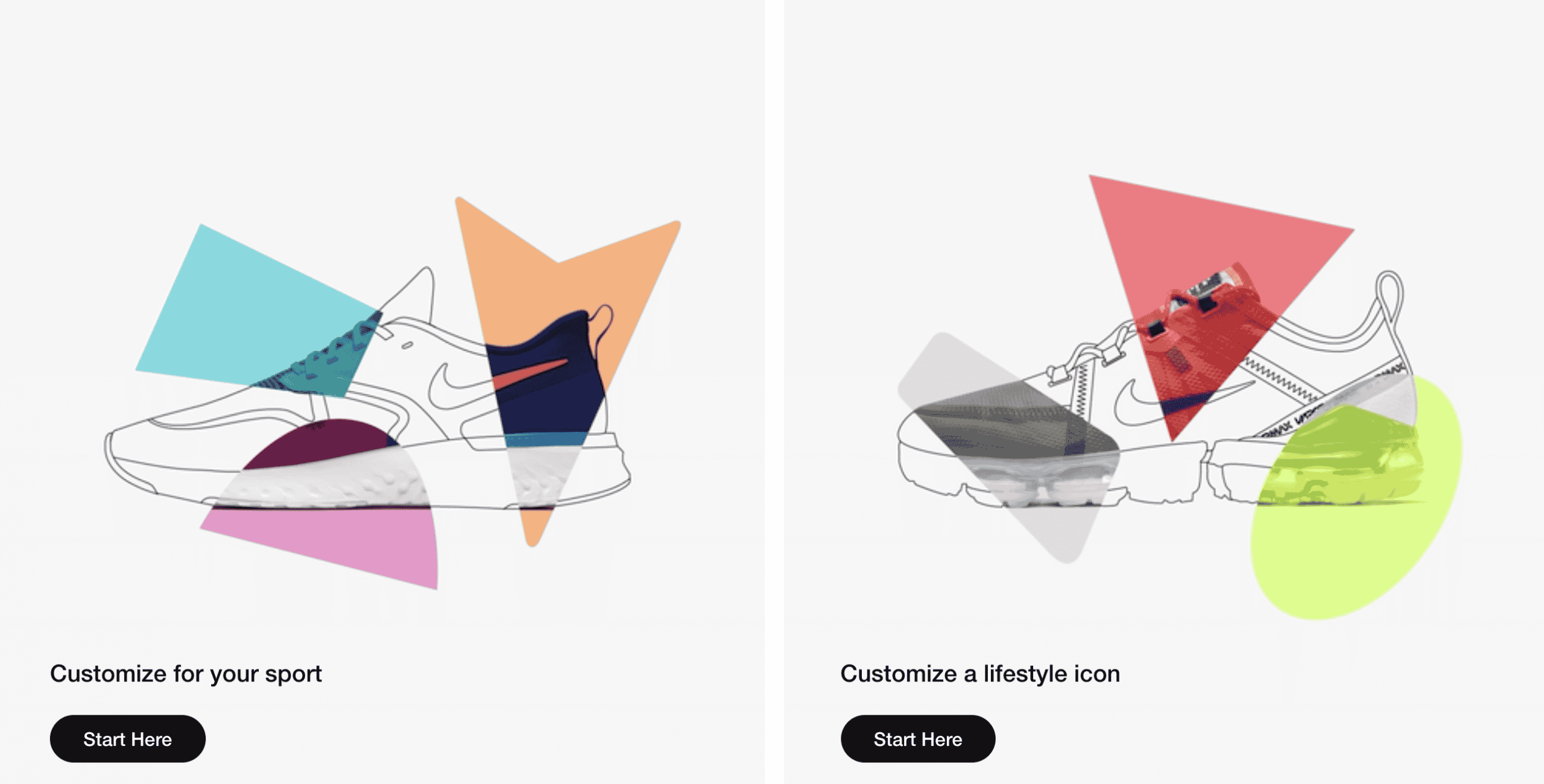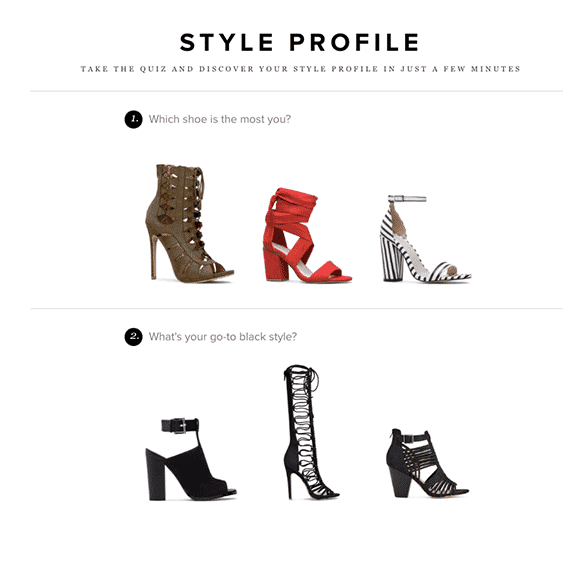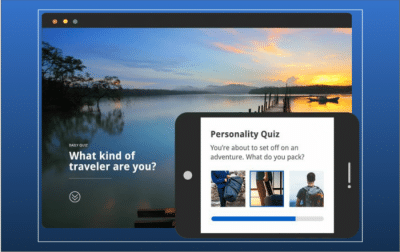Article
How Shoe Brands Like DSW, Adidas and ShoeDazzle Prosper with Personalization
September 18, 2019

Finding the right shoe is no easy task. There are countless styles and brands to sort through, and the sheer number of choices can seem totally overwhelming. Then, once you find something you like, you need to try it on to see if it fits and if it’s comfortable enough to walk in. These are just some of the factors that go into finding the perfect pair — and the right shoe brands from which to buy them.
These factors also make shoe shopping an incredibly personal task. Therefore, shoe brands have no choice but to embrace personalization.
Shoes and the Power of Self-Expression
Custom-designed footwear has become an important trend in the shoe industry, both in terms of fit and style. Brands like Adidas, Nike, and Vans now offer countless options for their shoppers to customize their sneakers to reflect their own unique style. Customers can choose the color, sole, and laces that appeal most to them to create a pair of sneakers that’s all their own.

Fit is obviously also extremely important. This is especially true with athletic shoes, where a well-fitting shoe can protect your foot and improve your performance. Adidas has been increasingly using technology to help customers achieve this. With the sportswear giant’s pop-up Speedfactory Lab Experience, designers scan consumers’ feet to get an accurate picture of their length, width, and structure. They also ran on a treadmill while cameras recorded their stride and gait. This data was used to help participants find their perfect running shoe. Since this technology is still relatively new, it’s mainly used to create limited edition sneakers for runners in select locations.
Although it will take time before this technology is widely available, there are other ways that retailers can create a more personalized shopping experience for their customers. These include providing highly personalized recommendations or offering a running assessment to help customers find the best athletic shoe for them.
What Makes DSW Stand Out Among Shoe Brands?
In Sailthru’s third annual Retail Personalization Index, DSW led the way among shoe brands, coming in fifth place. Since the first Index, DSW has completely revised its in-store strategy, loyalty program, and personalization efforts.
In stores, DSW has introduced shoe repair concierges and salon services. The retailer has also equipped sales associates with tablets, allowing them to access customer profiles, current offers, and personalized recommendations.

DWS has revamped its loyalty program in response to customer feedback. The new version of the program has three tiers and a simplified points system, helping customers earn rewards faster. Every 100 points is worth $5, with many opportunities to earn extra points. For example, DSW VIP can get 50 of them by donating a pair of shoes at any brick-and-mortar store. They also receive shipping and in-store returns, as well as a birthday gift.
DSW’s personalization efforts are also reflected in its mobile app, which helps customers navigate their seemingly endless inventory. DSW sends its customers personalized messages through its mobile app, including personalized product recommendations and information about relevant discounts. With geolocation technology, DSW also uses the app to personalize customers’ in-store experience, sending relevant messages when they walk in.
The Pluses of Personalization
ShoeDazzle, part of TechStyle Fashion Group, is another example of shoe brands understanding this well. The subscription retailer tailors emails based on how a customer interacts with their brand. ShoeDazzle personalizes subject lines and send times. In addition, product recommendations are personalized down to interest.

Customers who receive highly personalized emails are more likely to engage with the brand because the information is relevant to them. These personalized email communications result in more sales over time.
Modern customers want and expect personalized service and communications. And personalization will differ across brands, since it needs to be based on the unique needs of each brand’s target customer.
This is especially important for shoe brands, since shoe shopping is an extremely personal experience. Each customer needs a shoe that fits them properly, and for many customers, shoes are a fashion statement and a way to express their unique personality.
The State of Brand Loyalty in the U.S. in 2023
Related



